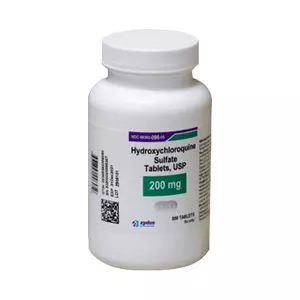Anti Malaria Medicine for Malaria Treatment
Malaria is one of the serious, sometimes fatal, diseases caused by a parasite that can be transmitted to humans via a bite from an infected mosquito. Typically, people with malaria get extremely sick with symptoms of high-grade fevers, chills, headache, and flu-like sickness. There are four kinds of malaria parasites – Plasmodium (P) falciparum, P. vivax, P. malariae, and P. ovale.
Amongst all types of malarial parasites, P. falciparum is the serious type of malaria, which causes severe infections and may even lead to death if left treated. Globally, every year, more than 210 million people get infected with malaria, while over 440,000 people die from this infectious disease. While malaria is uncommon in temperate climates, it is common in tropical and subtropical nations.
The World Health Organization (WHO) has been taking important steps to reduce the incidence and prevalence of malaria by encouraging people to follow preventive strategies. Researchers are trying to develop a malaria vaccine. To prevent malaria, you must take steps to prevent mosquito bites, which can be done by wearing full protective clothing, using mosquito repellants, and sleeping under mosquito nets.
Fast Facts about Malaria
- Malaria persists in more than 100 countries, affecting over 3 billion people globally, but the mortality rate is more in sub-Saharan Africa.
- In the United States, nearly 1,500 cases of malaria are reported every year.
- Pregnant women and nursing mothers are extremely susceptible to malaria. Malaria can be passed to the infant if the mother gets malaria during her pregnancy.
- Please note that malaria is not a contagious disease. The infection cannot be transmitted through close contact or sexual contact.
- Children below 5 years of age are vulnerable to malaria. In 2018, children accounted for more than 67% of all malaria deaths across the world.
Symptoms of Malaria
A malarial infection usually starts with fever with shivering and chills, followed by high-grade fever, sweating, and then returning to normal temperature. The symptoms typically begin within a few weeks of the invasion of the parasite. However, some forms of malaria parasites may lie dormant in the body. Generally, malarial infection is characterized by the below-mentioned signs and symptoms:
- Fever
- Shaking chills
- Sweating
- Headaches
- Nausea or vomiting
- Muscle pain
- Fatigue
- Chest or abdominal pain
- Cough
Diagnosis of Malaria
First, your doctor will review your medical history and then conduct a physical exam based on your symptomatology. Your doctor will then order a blood test, called peripheral blood smear, to confirm the diagnosis of malaria. The blood test will show the presence of the parasite and confirm a malaria diagnosis.
Blood tests can also help detect the type of malarial parasite you have. Other blood tests are advised to determine whether malaria is causing any complications. Certain blood tests may take several days to complete.
Treatment of Malaria
Malaria is a curable condition, which can be treated with prescription drugs that kill the parasite. Your doctor will advise the type of drugs and the duration of treatment considering the type of malaria you have; the severity of the symptoms; your age; whether you are pregnant; the medications you have been taking.
Medications
Artemisinin-based combination therapies (ACTs): In most cases, ACTs are the first-line treatment for malaria. Artemether-lumefantrine (Coartem) and artesunate-amodiaquine are the commonly advised malarial drugs. ACT is a combination of two or more drugs, which can work against the malaria parasite.
Chloroquine and Hydroxychloroquine: Chloroquine and hydroxychloroquine are almost the same drugs. They are advised to treat and prevent malaria. Chloroquine is sold under the brand name Aralen, while hydroxychloroquine under the brand name Plaquenil. These drugs kill the parasite and do not allow it to enter the human red blood cells. However, people with G6PD deficiency are not advised to take Aralen or Plaquenil.
Other commonly prescribed antimalarial drugs include atovaquone, proguanil (Malarone), quinine sulfate (Qualaquin), doxycycline (Vibramycin), Mefloquine, and Primaquine phosphate.
Complications of Malaria
Malaria can prove to be fatal if it is diagnosed late or left untreated. Older people, pregnant women, and young children are particularly at risk of developing complications from malaria. Among all malarial parasites, Plasmodium falciparum causes the most severe form of malaria, which may even lead to death.
Complications of malaria may occur within hours or days of the first signs and symptoms. It is important to seek medical attention right away.
Anemia: Malaria can cause anemia because the parasite destructs red blood cells. Anemia is a condition in which the red blood cells fail to carry enough oxygen to important organs of the body.
Cerebral malaria: Malaria can affect the central nervous system in rare cases. It can cause the brain to swell, resulting in permanent brain damage. Cerebral malaria can also cause seizures or coma.
Blackwater fever: A malarial complication in which the red blood cells burst in the bloodstream, called hemolysis. This complication releases hemoglobin directly into the blood vessels and urine, causing dark urine. This condition could lead to acute kidney failure.
Other complications: Liver failure or jaundice, shock, pulmonary edema, acute respiratory distress syndrome (ARDS), splenomegaly (spleen enlargement), and dehydration.
Malaria in pregnancy: The WHO has recommended that pregnant women should never travel to areas where malaria is endemic. Malaria during pregnancy could increase the risk of premature birth, low birth weight, stillbirth, miscarriage, and even death of the mother.
Prevention of Malaria
If you reside in an area or travel to an area where malaria persists, you must take steps to avoid mosquito bites. You should cover your skin by wear protective and long-sleeved clothing. Apply insect repellants to skin. Spray aerosols containing DEET. Sleep under a mosquito net or bed net. Preventive medicines, such as chloroquine and hydroxychloroquine, can be taken when you are about to visit a nation where malaria is endemic. Seek medical advice to know more about how to prevent malaria.

